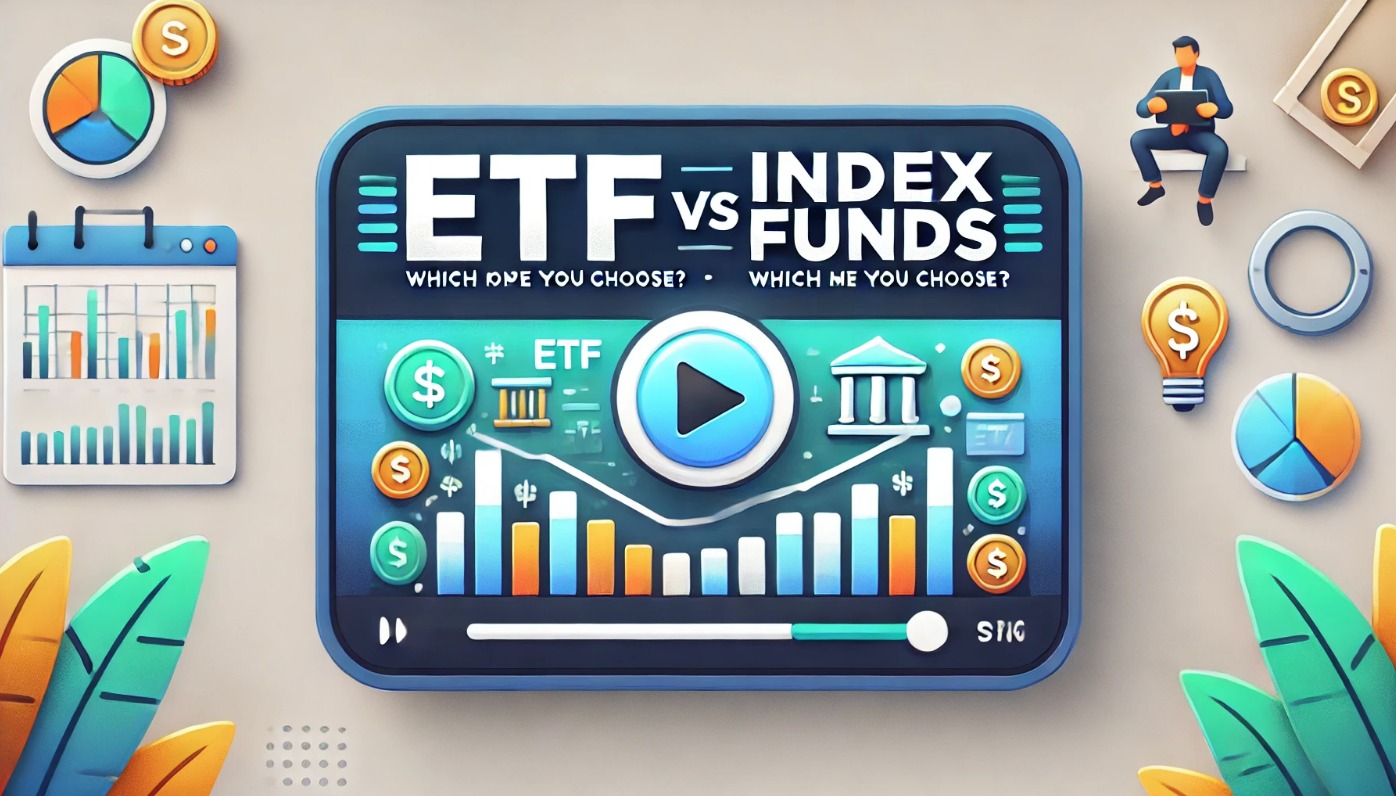ETF vs Index Funds: Which One Should You Choose?

Investing in the stock market can be overwhelming, especially with so many options available. Two of the most popular investment vehicles for passive investors are Exchange-Traded Funds (ETFs) and Index Funds. While they share many similarities, key differences set them apart. This article will compare ETFs and Index Funds, helping you decide which one best suits your financial goals.
What are ETF’s?
Exchange-Traded Funds (ETFs) are investment funds that trade on stock exchanges, similar to individual stocks. They are designed to track the performance of a specific index, sector, commodity, or asset class. Some common types of ETFs include:
- Equity ETFs – Track stock market indices like the NIFTY 50 or S&P 500.
- Bond ETFs – Invest in government or corporate bonds.
- Sector ETFs – Focus on specific industries like technology, healthcare, or banking.
- Commodity ETFs – Invest in commodities like gold, silver, or oil.
ETFs can be bought and sold throughout the trading day at market prices, offering high liquidity and flexibility.
What are Index Funds?
Index Funds are mutual funds that aim to replicate the performance of a specific stock market index. Unlike ETFs, Index Funds are not traded on exchanges throughout the day. Instead, they are bought and sold at the fund’s Net Asset Value (NAV), which is determined at the end of the trading day.
Index Funds provide diversification, lower costs, and a passive investment strategy, making them ideal for long-term investors.
Key Difference
| Feature | ETF’s | Index Funds |
| Trading Mechanism | Traded on stock exchanges like shares | Bought and sold at NAV at the end of the day |
| Liquidity | High – can be traded anytime during market hours | Lower – executed only once per day |
| Expense Ratio | Generally lower than index funds | Slightly higher due to operational costs |
| Minimum Investment | Can buy as little as one share | Often have a minimum investment requirement |
| Tax Efficiency | More tax-efficient due to in-kind creation/redemption process | Less tax-efficient as capital gains may be triggered by fund manager actions |
| Flexibility | More flexible – allows intraday trading and stop-loss orders | Less flexible – only allows buying and selling at day’s NAV |
| Dividend Reinvestment | May require manual reinvestment of dividends | Often offers automatic dividend reinvestment |
Which one is right for you?
Choose ETFs if:
✔️ You want the flexibility of trading throughout the day.
✔️ You prefer lower expense ratios and tax efficiency.
✔️ You like the ability to use stop-loss and limit orders.
Choose Index Funds if:
✔️ You are a long-term investor and don’t need intraday trading.
✔️ You prefer automatic dividend reinvestment.
✔️ You want a simple, hassle-free investment strategy.
Conclusion
Both ETFs and Index Funds are excellent choices for passive investors looking for low-cost, diversified investments. Your choice depends on your trading style, investment goals, and tax preferences. If you want flexibility and intraday trading, ETFs might be the better option. However, if you prefer a hands-off approach and long-term investing, Index Funds are a great choice.
Looking to invest smartly? Whether you choose ETFs or Index Funds, start your investment journey with a well-researched strategy and a clear financial goal. Happy investing! 🚀


